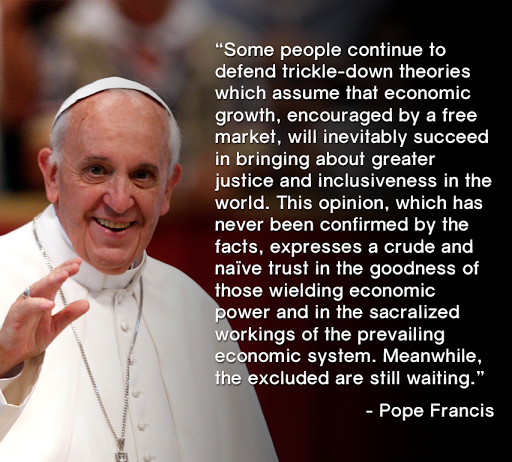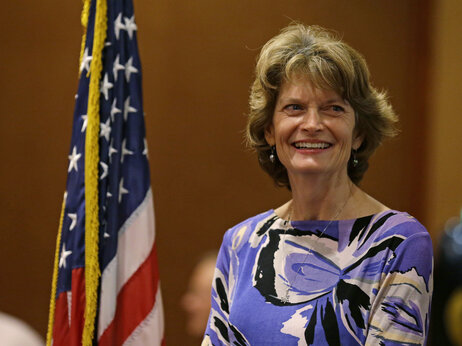
If You Think D.C. Is Awful Now, Wait Until Wednesday
Well before the midterms, a weary conventional wisdom set in: This is a “Seinfeld election”—an election, like the hit comedy, “about nothing.” If, as expected, Republicans take control of the Senate, they will try to repeal Obamacare and pass a string of other outlandish bills, all of which President Obama will veto. Or they might block some judgeships but work with the president in a few areas in order to build an agenda to run on in 2016. In other words, we’re told, this election is No Biggie.
This analysis, which you will hear again tonight on all the networks, ignores the ferocious radicalism of today’s Republican Party. As majority leader, Mitch McConnell might want to cut deals, but he will be dealing with a GOP caucus in the Senate that increasingly resembles the one John Boehner must contend with in the House, not to mention a base that has derailed several attempts to present a more moderate agenda on issues ranging from taxes to immigration.
The biggest impact of a GOP takeover will be on appointments. Many Obama administration sub-Cabinet positions (e.g. Surgeon General) have gone unfilled because of GOP opposition. Now many will likely remain vacant for another two years. Republicans don’t care. They hate government (except when it gives them a paycheck) and making it run worse just helps them convince the public that Democrats are incompetent.
The federal bench will be harmed by dozens of vacancies going unfilled, causing a case backlog. Meanwhile, none other than Sen. Ted Cruz is slated to become chairman of the subcommittee of the Senate Judiciary Committee responsible for constitutional rights. Imagine the hearings he will hold. With any luck, the press won’t cover them, but don’t hold your breath.
Should Supreme Court Justice Ruth Bader Ginsburg (a cancer survivor) or one of the other justices have to step down, all hell would break loose. Republicans would likely block any Obama nominee to the high court, especially for one of the conservative seats, leaving a 4-4 partisan split until early 2017, meaning that important cases would go undecided. Talk about gridlock.
The worst effect of a Republican takeover would be on the environment. The climate-change denial caucus would likely grow larger and more radical. Take Joni Ernst, a GOP darling now favored to be the next senator from Iowa. Ernst, best known for castrating pigs, doesn’t just want to ease environmental regulation; she favors abolishing the EPA altogether. That’s right—get rid of the agency created under Richard Nixon that has cleaned up the nation’s water and air. And if you think moderate Republicans are shunning her, consider that former President George H.W. Bush has been called in to help her campaign.
Moderates and independent voters in states like Iowa, Colorado, and North Carolina who cast their ballots for Republican candidates for the Senate should know that they are contributing greatly to the ascendancy of climate-change denial—a generation of politicians dedicated to burying their heads in the sand.
The ostrich-in-chief—and proud of it—is a former mayor of Tulsa, Oklahoma, who once compared the director of the EPA to Tokyo Rose and the agency to the Gestapo. If Republicans win the Senate on Tuesday, Oklahoma Sen. James Inhofe, now in his fourth term, is set to become the next chairman of the Senate Committee on Environment and Public Works, a position he held from 2003 to 2007, when the Republicans last held control. He will make it his business to carry water for the fossil-fuel industry, smear climate scientists, and do everything else in his considerable power to prevent the country and the world from confronting the slow motion crisis of climate change.
Inhofe is not just a climate-change denier; he is a warrior for corporate-funded half-truths and outright lies. While McConnell and other Republican candidates this year have adopted the mantra, “I’m not a scientist” to dodge pesky climate-change questions, Inhofe charges ahead with an Orwellian argument.
In his 2012 book, The Greatest Hoax: How the Global Warming Conspiracy Threatens Your Future, Inhofe explains how he is a prophet without honor in his time. “First I stood alone in saying that anthropogenic [manmade] catastrophic global warming is a hoax,” he writes, launching into an attack on Al Gore. “Now Gore stands alone in his dismissal of reform, openness, transparency and peer-review to ensure good science.”
That’s a pretty good encapsulation of how Inhofe will run his committee if the GOP takes control and he succeeds Sen. Barbara Boxer as chairman. Notice how he says it is Gore who rejects “openness” and “peer review.” It’s the old I’m-rubber-you’re-glue approach. A reader commenting on Amazon put it this way: “Where are the publications in Nature, Science, Proceedings of the National Academy of Sciences, Nobel Prizes in chemistry or physics? None. Zero. Nada. Absolutely nothing. Oldest trick in the bully book: Call the others a hoax so that the bully’s hoax goes unnoticed. This ‘book’ is a hoax.”
Of course pointing this out won’t stop Inhofe, who will use the gavel to pound away at environmentalists as if they—not the climate-change deniers—are the ones abusing science.
In the time since Inhofe was last chairman, the deniers received a gift from the gods in the form of what they predictably call “Climategate.” This was a scandal involving the disclosure of emails and documents at the Climate Research Unit at Britain’s East Anglia University that suggest a couple of bad apples among the tens of thousands of scientists who believe climate change is real—scientists who ignored or twisted some data.
Even in an era when the public detests Washington, the U.S. Senate remains a powerful platform to advance ideas, including historically bad ones.
Inhofe will use his large megaphone to try to convince the world these this 2009 incident is proof of “the greatest hoax ever perpetrated on the American public.” The world’s most eminent climate scientists, who all believe climate change is real, are, according to Inhofe, “in it for the money” and apparently part of the vast conspiracy that he says he will devote the rest of his days to exposing.
Actually, Inhofe does a few other things in the Senate, too, like pushing for federal disaster relief funds for the residents of Moore, Oklahoma, which was devastated by a 2013 tornado, while voting to deny such funds for the victims of Hurricane Sandy. Inhofe said the two disasters were different because the hurricane drew so many moochers.
When Inhofe last chaired Environment and Public Works, George W. Bush was in the White House and Inhofe reserved most of his barbs for Democrats and the press. In January, if the GOP wins Senate control, he will go after Obama and the EPA with a vengeance.
The first goal will be to reverse Obama’s recently announced regulation of carbon emissions from coal-fired plants. With the help of McConnell, who is expected to be re-elected in large part on the coal issue despite his continued unpopularity in Kentucky, Republicans could attach a repeal of the rule to the so-called Continuing Resolution.
That’s the bill—up for consideration either in December or sometime next year—required to keep the government open. If Inhofe and the climate-change deniers have their way, they will force Obama to veto that bill, then blame him for forcing a government shutdown. The resulting negotiation, they hope, would gut the EPA regulation.
Inhofe has a record of recklessness that shouldn’t be underestimated. After he landed a private plane at a closed Texas airfield in 2010 and almost killed a group of construction workers, the airport manager was quoted as saying, “I’ve got over 50 years flying, three tours of Vietnam, and I can assure you I have never seen such a reckless disregard for human life in my life. Something needs to be done. This guy is famous for these violations.”
One advantage of Inhofe taking the gavel is that he might have to start playing defense. We got an indication of that last July when Sen. Sheldon Whitehouse schooled him in a floor debate after Inhofe and other Republicans blocked a resolution declaring that climate change is real. Whitehouse noted that Inhofe charged that government agencies had been “colluding” to peddle climate-change threats.
Did this include NASA, the U.S. Navy and the National Weather Service? Was Inhofe suggesting we shouldn’t trust those agencies with the lives of astronauts and sailors, or that we should disbelieve weather forecasts? Was he suggesting that Wal-Mart, Pepsi, Mars, Google, Apple and the entire property and casualty insurance business were in on a big lie? Whitehouse concluded by citing surveys showing that even young Republicans believed that only people who were ignorant, out of touch, or crazy rejected climate science.
Historians looking back 100 years from now to the early 21th century are likely to conclude the same thing as they chronicle the biggest story of our time: How the United States and other great nations fiddled while the world burned.
On Sunday, the Intergovernmental Panel on Climate Change (IPCC)—reflecting a consensus of global scientists—issued another dire report, this one warning that temperatures in many regions could grow so hot that it will become difficult for large percentages of the world’s population to work or play outdoors during the hot months of the year. The report repeated warnings of catastrophic food shortages, refugee crises, major cities and even entire countries left underwater by flooding, and mass extinction of plants and animals.
Even in an era when the public detests Washington, the U.S. Senate remains a powerful platform to advance ideas, including historically bad ones. So voters might want to consider who else—and what else—they are elevating when they go to the polls on Tuesday and vote for ostriches.
***
Jim Inhofe
Wikipedia
Jim Inhofe
Wikipedia
Excerpt:
Israel
In a Senate speech on March 4, 2002, Inhofe presented his position on the "seven reasons that Israel has the right to their land."[62]
These are summarized as follows:
- Archeological evidence. Excerpt: "Every time there is a dig in Israel, it does nothing but support the fact that Israelis have had a presence there for 3,000 years."
- Historic right. Inhofe's case includes the historic presence of Israel prior to the Roman Empire, and the promise given to the Jews by Britain in 1917 to provide a Jewish homeland.
- Agricultural development. Inhofe argues that Israel has been "able to bring more food out of a desert environment than any other country in the world."
- Humanitarian concerns. Inhofe argues that due to the extent of their persecution - he cites Russia - and their slaughter - during World War II by the Nazis - the Jews are entitled to a homeland, and that this is not an unreasonable demand.
- Strategic ally of the United States. "They vote with us in the United Nations more than England, more than Canada, more than France, more than Germany — more than any other country in the world."
- Israel acts as an effective roadblock to terrorism. In this part of his speech, Inhofe refers to four wars which Israel has fought and won (as of the date of his speech, dated 2002): "The 1948 War of Independence, the 1956 Sinai campaign, the 1967 Six Day War, and the 1973 Yom Kippur War." And he states that "In all four cases, Israel was attacked. They were not the aggressor ... In regard to their effectiveness, they are great warriors. They consider a level playing field being outnumbered 2-to-1." He also states at this point that, "One of the reasons I believe the spiritual door was opened for an attack against the United States is that the policy of our government has been to ask the Israelis, and demand it with pressure, not to retaliate in a significant way against the terrorist strikes that have been launched against them."[62]
- Biblical references. Inhofe states, "I believe very strongly that we ought to support Israel, and that it has a right to the land, because God said so."
In a Senate speech, Inhofe said that America should base its Israel policy on the text of the Bible:[63]
| “ | I believe very strongly that we ought to support Israel; that it has a right to the land. This is the most important reason: Because God said so. As I said a minute ago, look it up in the Book of Genesis. It is right up there on the desk. In Genesis 13:14–17, the Bible says: The Lord said to Abraham, "Lift up now your eyes, and look from the place where you are northward, and southward, and eastward and westward: for all the land which you see, to you will I give it, and to your seed forever. . . . Arise, walk through the land in the length of it and in the breadth of it; for I will give it to thee." That is God talking. The Bible says that Abraham removed his tent and came and dwelt in the plain of Mamre, which is in Hebron, and built there an altar before the Lord. Hebron is in the West Bank. It is at this place where God appeared to Abram and said, "I am giving you this land — the West Bank". This is not a political battle at all. It is a contest over whether or not the word of God is true. | ” |
In March 2002, Inhofe also made a speech before the U.S. Senate that included the explicit suggestion that the 9/11 terrorist attacks were a form of divine retribution against the U.S. for failing to defend Israel. In his words: "One of the reasons I believe the spiritual door was opened for an attack against the United States of America is that the policy of our Government has been to ask the Israelis, and demand it with pressure, not to retaliate in a significant way against the terrorist strikes that have been launched against them."[64]
***















.png)

















